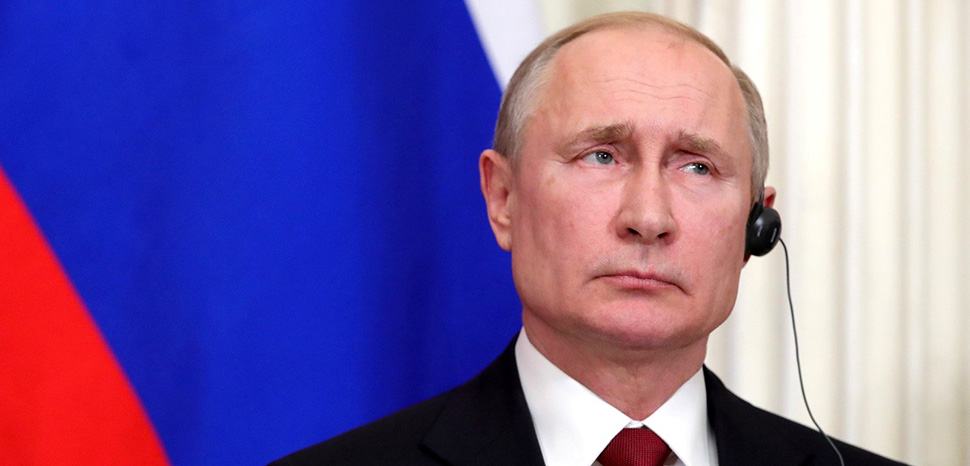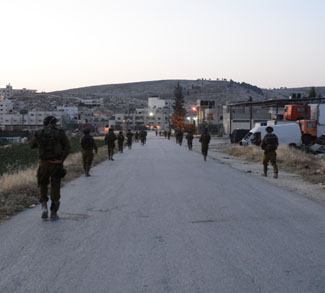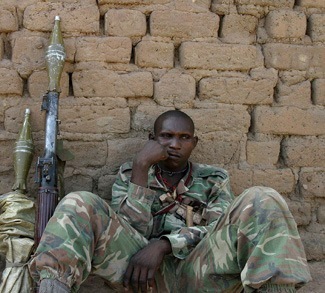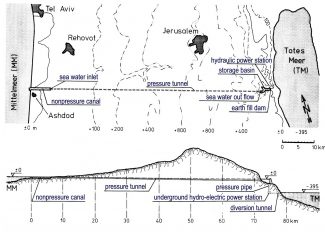Georgians and Armenians who made billions in the 1990s Wild West drive to capitalism in Russia have been sent to the South Caucasus to pursue the Kremlin’s strategic goals. Georgians and Armenians who became billionaires in Russia could only have done so in collusion with organized crime, then on top in Russia, and the former KGB turned FSB security service.
Nobody made their money in a clean manner in 1990s Russia. Therefore, there is undoubtedly Russian kompromat (compromising materials) on Georgians, Armenians, and others who became billionaires in Russia.
Bidzina Ivanishvili, who became a billionaire in 1990s Russia, returned to Georgia not coincidentally after Russia’s 2008 invasion. The main Russian goal of the invasion was regime change; that is, the removal of Mikhail Saakashvili from power. Russia’s invading army did not drive as far as Tbilisi and did not accomplish regime change.
Instead, the Kremlin prepared a different strategy. Ivanishvili was apparently sent from Russia to Georgia as a Russian Trojan Horse where he founded the Georgian Dream-Democratic Georgia party in 2012, which emerged from that year’s elections in a governing coalition, defeating the United National Movement led by Prime Minister Vano Merabishvili and President Saakashvili. Ivanishvili was Georgia’s prime minister from 2012-2013.
Ivanishvili accomplished what Russia failed to do in 2008; namely, the removal of Saakashvili from Georgian politics with his imprisonment in 2021, only a few months before Russia invaded Ukraine. Georgia under Ivanishvili has become a pro-Russian state by, together with Armenia, helping Russia evade Western sanctions, becoming less enthusiastic about NATO membership, and not supporting Ukraine in its war or condemning Russia for its invasion.
These steps by the pro-Russian Ivanishvili regime are not popular in Georgia, where the majority of the population is strongly in support of Ukraine. The Georgian Legion is the largest foreign unit fighting for Ukraine and has lost the highest number of soldiers killed fighting Russia’s invading force. Georgian civil society is also sending humanitarian aid to Ukraine.
Armenia’s security establishment has maintained its deep ties to Russia since the Soviet era. Moscow has always sided with Armenia in the Karabakh conflict and has not pressured Yerevan to implement the 2020 negotiated peace treaty, such as removing its proxy forces from Karabakh. Russia’s so-called ‘peacekeepers’ have turned a blind eye as Armenia has rotated its proxy forces in Karabakh and supplied weapons to them through the Lachin corridor. Recently the Kremlin has threatened tough measures against Azerbaijan for its support for Ukraine.
Armenian Ruben Vardanyan also became a billionaire in 1990s Russia. Vardanyan is the former head of the Troika Dialog company and former president of the Skolkovo Moscow School of Management. Politically, Vardanyan is a critic of Prime Minister Nikol Pashinyan and aligned with pro-Russian nationalist hardliners in Armenia who refuse to countenance Karabakh as Azerbaijani territory and therefore oppose the signing of a peace treaty.
The Kremlin apparently sent Vardanyan to Karabakh with the goal of derailing the EU’s successful brokering of a peace deal between Armenia and Azerbaijan. As in Moldova and Georgia, Russia has always preferred a frozen conflict in Azerbaijan which would give Moscow the means to continue to interfere and base its so-called ‘peacekeeping’ forces in Karabakh. Iran upholds the same position as Russia. Vardanyan was parachuted into Karabakh by the Kremlin to become the so-called state minister (i.e., prime minister) of the Nagorno-Karabakh republic, an entity which is not recognized by the Azerbaijani constitution.
During the October 31 three-sided meeting in Sochi, Azerbaijani President Ilham Aliyev criticized the arrival of the Armenian billionaire to President Vladimir Putin, who denied any involvement. This is highly unlikely. Presumably, Vardanyan could not have renounced his Russian citizenship and moved to Karabakh to take up a ‘government’ position of state minister without the consent of the Kremlin. Vardanyan’s portfolio overseeing all of the so-called government ministries and agencies (except those of the military, police and security service) will be bigger than his predecessor Artak Beglaryan. Constitutional changes will give Vardanyan even greater power.
Vardanyan’s statements indicate he is opposed to Karabakh being recognized in a peace treaty signed between Armenia and Azerbaijan. Vardanyan claims he is ‘defending’ the Armenian population in Karabakh, which is estimated at being only 25,000, from being driven out with the use of nationalist rhetoric that falsely accuses Azerbaijan of planned repressive policies in the event of the signing of a peace treaty. ‘Saving Artsakh (the Armenian name for Karabakh) is the main goal of my life today,’ Vardanyan said in a Facebook post.
The Kremlin has a bigger goal of engineering Vardanyan to use Karabakh as a springboard to become Armenia’s equivalent of Ivanishvili, a pro-Russian leader serving Russian strategic interests in the South Caucasus. The Kremlin’s goal would be for Vardanyan to replace Pashinyan in the same way as the Kremlin brought Ivanishvili to Georgia to replace Saakashvili.
Putin has always been suspicious of Pashinyan because he came to power in 2018 in a color revolution which the Kremlin have always viewed as Western engineered coups against Russian interests in Eurasia. The Kremlin is also suspicious of Pashinyan because of his willingness to work with the EU towards signing a peace treaty.
Vardanyan took office on November 4, not coincidentally only a month after the statement by the so-called Karabakh Security Council opposing the peace treaty which was being brokered by the EU that would have required concessions by Pashinyan. The statement rejected the principle of territorial integrity and thereby Karabakh being part of Azerbaijan: ‘Any document that may … limit the possibilities of international recognition of the right of the Artsakh people to self-determination and the results of its implementation is unacceptable for us, including the false agenda of its subordination to the principle of territorial integrity.’
What the so-called Security Council was in effect saying was that if Crimea had a right to ‘self-determination’ so too did Karabakh. Armenia has always voted at the UN against resolutions condemning Crimea’s annexation by Russia in 2014.
The Kremlin’s parachuting of Vardanyan into Karabakh was because of the Kremlin’s fear of the EU’s success in brokering a peace treaty that would have been signed by the end of the year. The peace treaty was being negotiated by Armenia and Azerbaijan without the involvement of Armenians from Karabakh. Vardanyan promotes a vague formulation of living ‘next to’ Azerbaijanis, but not ‘together.’
Vardanyan presumably therefore has two roles for the Kremlin. Firstly to torpedo the EU-brokered peace treaty and secondly to become Armenia’s Ivanishvili. The US has included Vardanyan in the draft legislation Putin Accountability Act and should understand his role as a Kremlin agent to undermine peace and security in the South Caucasus. The EU brokered talks and US mediated ministerial meetings showed a path to a peace treaty that would have recognized Azerbaijan’s sovereignty over Karabakh. This would have removed the need for Russia’s so-called ‘peacekeepers’ with Azerbaijan not renewing their mandate in 2025.
The Kremlin’s brokered talks on the other hand, only serve to ‘normalise’ relations between Armenia and Azerbaijan within Russia’s Eurasian sphere of influence. There would no agreement on Karabakh because leaving it unsettled guaranteed Russia’s continued interference in the South Caucasus. Russia adamantly opposed the presence of an EU Monitoring Mission in Armenia comprised of a few dozen unarmed members, a step which Putin described as ‘anti-Russian.’ Russia has over 10,000 troops and security personnel based in Armenia.
Azerbaijan will only a peace treaty that recognizes the territorial integrity of the country based on the boundaries that existed between Soviet republics which on January 1, 1992 became international borders, and that includes Karabakh. Of the two negotiating groups, only the EU and US agree with Azerbaijan’s position. Russia is using Vardanyan to undermine the EU-US peace talks, and keeping the Karabakh question frozen as a means to continue its interference in the South Caucasus.
Taras Kuzio is a professor of political science at the National University of Kyiv Mohyla Academy and author of the forthcoming Fascism and Genocide: Russia’s War Against Ukrainians.




